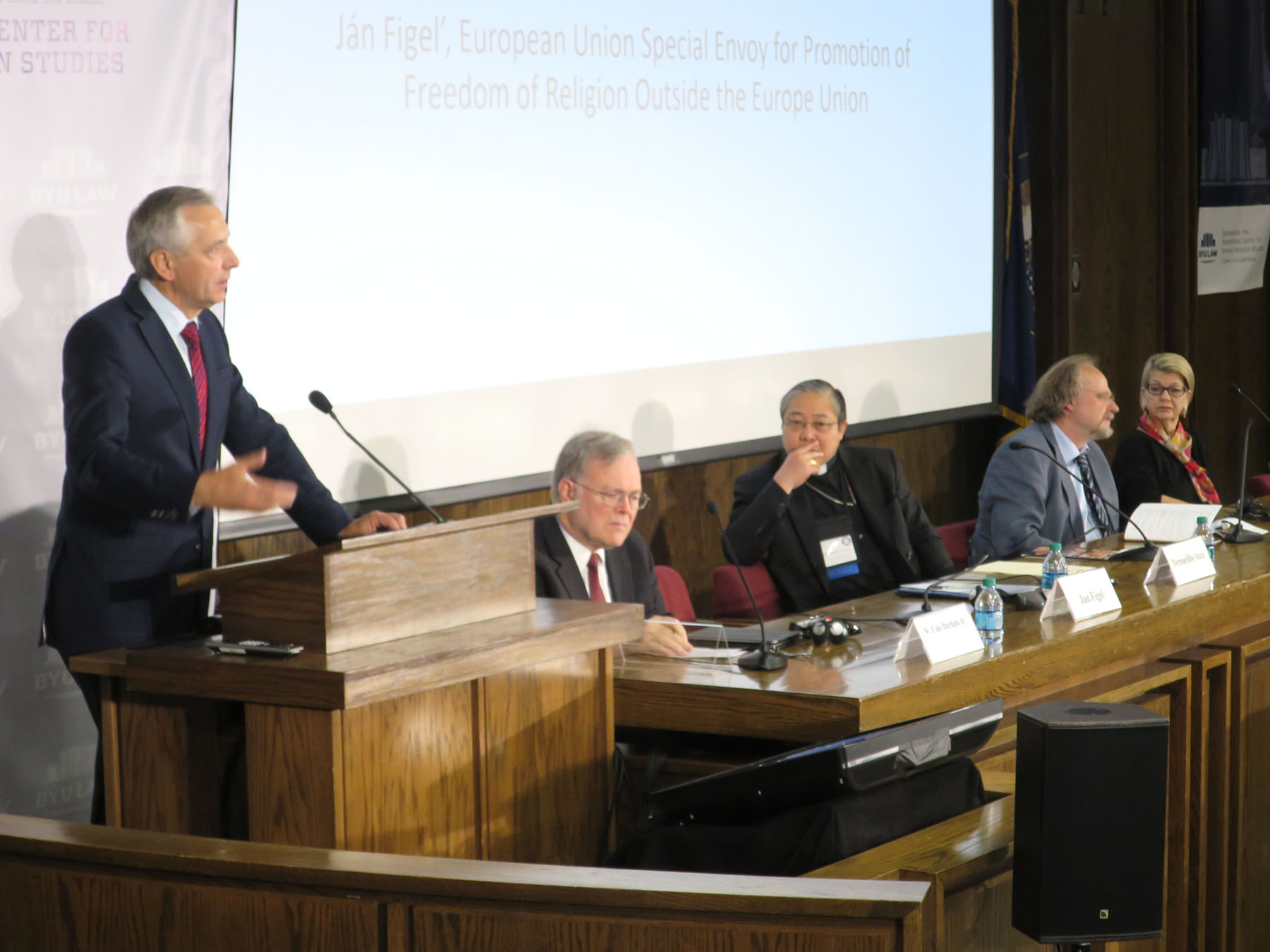2016 Symposium: Third Plenary Session – International Protection of Religious Rights

by Jordan Pendergrass
Ján Figel’, Special Envoy for the Promotion of Freedom of Religion or Belief Outside the European Union, opened the Third Plenary Session of the symposium. His remarks were entitled “Religious Freedom and Century of Genocides.” He first reviewed the primary international covenants relating to religious freedom, and then explained the prominence of the human right of religious freedom. Mr. Figel’ explained that religious freedom is the litmus test of all rights, and that there are no real civil rights without religious freedom. Religious freedom, he explained, is not extra, but rather is core and based in the first value: human dignity. Mr. Figel’ discussed his role as the first Special Envoy. Not surprisingly, he expressed his hope that there is a rich succession of envoys in the future. He made clear the fact that his nomination was not aimed at helping only Christians and stated that “my role is to help all.” Regarding the pressing issue of genocide, he mentioned how 70 years have passed since the Nuremberg Trials, but the mantra of “never again” remains an incomplete vision. He described the various national and international bodies that have made pronouncements of genocide in the present, but then asks whether genocide is a thing of the past or the way of the future. He highlighted the participation of young people during the symposium, and expressed his confidence and hope for the future.
The next speaker was Archbishop Bernardito Auza, Permanent Representative to the Holy See at the United Nations. His remarks were entitled “The Importance of Religious Freedom and Religious Responsibility Today.” He emphasized the importance of Freedom of Religion or Belief (FoRB), and how there are egregious violations of FoRB occurring today that require urgent response. Not all FoRB violations appear in the news, he explained; some violations are much less visible—especially when caused by non-state actors—but they are nonetheless problematic. Mr. Auza described how Dignitatis humanae provides the modern roots of Catholic thought on FoRB, and how Pope Francis actively endeavors to foment brotherhood, freedom, and a greater good for all.
The session concluded with comments from two more prominent FoRB figures: Heiner Bielefeldt, UN Special Rapporteur on Freedom of Religion or Belief, and a professor of human rights; and Sandra Jolley, Commissioner, United States Commission on International Religious Freedom. Mr. Bielefeldt acknowledged the weaknesses of existing mechanisms to address FoRB violations, but expressed hope for the future, citing two examples: at the UN, a Bahai’s defense of persecuted Shias; and British humanists collaborating on a mission, despite religious differences, in Indonesia. The important thing to remember is to not default to fatalism or cynicism, as that would betray human dignity. In her comments, Ms. Jolley described the reason for the creation of the United States Commission on International Religious Freedom (USCIRF). She explained how FoRB needed a place at the table of American foreign policy, alongside security and economics, because the expectations of the Universal Declaration of Human Rights had not been fully met. She described the mission and methods of USCIRF, as well as her particular objectives of overcoming barriers to protection for women, children, displaced persons, and many others.
This plenary session was moderated by W. Cole Durham, Founding Director of the International Center for Law and Religion Studies.